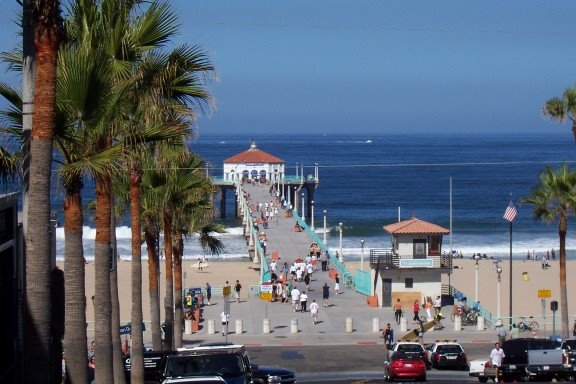Then in the summer the market took a new direction. Prices were down and buyers noticed. Sales volume increased and held steady into the 4th quarter when the market is usually at its lowest. Inventory dropped to levels not seen in many years. Even homes that had been around for years seem to have finally found buyers although at much lower prices.
The media stories about the California real estate market were numerous and conflicting. One day prices were up, the next they were down. Sales volume was increasing... whoops... no it was declining. The recession was over... but not quite yet. Real estate prices were going to go up in March 2010.. no make that June 2010 or maybe November... nope... in the summer of 2011 home prices would take a dramatic upturn. The truth is that no one really knows what is happening in local markets as they are changing by the minute.
There is a lot of talk that we have reached the bottom of the cycle and prices will now be moving up as property inventory remains on the low side. Other opinions have it that markets across the country are about to be blitzed with REO homes that lenders have been holding off the market along with vast numbers of properties that are so far underwater that a short sale is the only hope. As odd as this market is there is probably a bit of truth in both opinions.
Some factors to consider:
At the end of March, the Federal Reserve is expected to stop the $1.25 trillion program that's kept mortgage rates artificially low. Without the FED support you can expect to see rates rise to at least 6% and maybe higher. Higher mortgage rates will affect sales as each uptick in rates means fewer folks can qualify for the specific loan they want.
The Federal Housing Administration's (FHA)says that plans to tighten underwriting standards could take effect as soon as April. HUD Secretary Shaun Donovan has been hinting that in addition to the tighter rules that went into effect in December buyers may soon need to put 5% down compared to 3.5% currently required. Townhome.and condo buyers have already had to deal with recent changes FHA has instituted. While the South Bay doesn't see a huge number of FHA sales, you can bet that changes by them will influence the folks at Fannie and Freddie and even jumbo loan lenders. .
Congress will let the expanded home buyer tax credit expire for buyers not under contract by April 30 and closing by June 30. The rumor around town is that like the cash for clunkers program members of Congress didn't want to extend the program and have made it clear to all that this is the one and only extension. Again the extension didn't really affect our local real estate market in Manhattan and Hermosa but it was definitely a factor in Redondo and El Segundo as well as the South Bay Cities of Torrance, Hawthorne and Lawndale.
Shadow Inventory has been speculated about since the market started to decline. First American Core Logic puts the shadow inventory at about 1.7 million homes. The big issue here is that many of these homes in the shadow inventory are higher priced properties compared to the sub prime properties that were mainly found at the entry level in most markets. Speculation is rampant that we will see a large increase in higher priced homes hitting the market as distressed sales in 2010. If that happens it will affect all segments of the market.
The Fannie Mae forecast is for a subdued recovery. Fannie and Freddie aren't sold on the idea that the recession is over and the housing market is on the road to nationwide recovery. They think the worst is over and I suspect they may be right but they also know there may be more trouble down the way. Reaching the bottom of the market doesn't mean a return to double digit appreciation. Reaching the bottom may mean minimal declines in price at best but more likely a market that is flat with a few bounces along the way for exceptional properties.
The Economy remains tricky. While the recession may technically be over there are still a lot of pockets with problems. California unemployment remains a big factor. In the South Bay things aren't as tight as in other parts of the state which is good for us. However that doesn't mean we are not going to see continued difficulties in the job market. The government is pouring billions of dollars into the economy hoping to spark some new life. The problem I see is what happens when the subsidies stop. So far we aren't seeing much in California that points to immediate gains in the economy. The state economy is in deep trouble and that has to have some effect on all of us.
The outlook for commercial real estate is not good. Every commercial banker I have spoken with in the last 4 months says 2010 is going to be bad news for commercial properties. Lenders are already poised to start foreclosing on large numbers of commercial properties in the coming year. Banks, who are just now seeing some light at the end of the tunnel in the residential market, are not happy about the prospect of owning commercial properties. These are a tough sell as financing is difficult to obtain and finding tenants to service the debt is no easy task. If lenders find themselves awash in commercial properties you can bet they are going to hold back making loans on all properties including new home loans.
So what does this all mean... darned if I know....
What I think is that we are going to see inventory rise in the Spring. Some of the increase will be homes that are returning to the market in hopes of finding a buyer. I think we will see more short sales and foreclosure properties in the upper end of the market. Other entries will be sellers who are hoping the market has improved enough for them to get the price they want/need. I suspect there will be buyers and sellers disappointed to find out that just because the market may have stopped hemorrhaging doesn't mean the patient is cured.
A lot of homeowners that held on for the last few years are simply out of resources. I think prices will bounce around but overall will continue to decline slightly in the upper levels of the market while perhaps seeing slight increases in the entry level of most markets. That said there will be some homes that will sell at prices well beyond where most folks would predict while others that seemed to be sure bets will flounder.
Buyers are still very savvy about what they will and will not pay for a property. Multiple offers on a property don't necessarily mean multiple high offers. In many instances they are multiple low offers. Financing is going to remain tight even for the best qualified buyers. Appraisals are going to continue to be troublesome for all price ranges. Sellers will try to force buyers to write offers without an appraisal contingency but most smart buyers just aren't going to do that. In fact smart buyers have learned not to give up any contingency no matter what.
All in all I think this will be a better year for real estate as everyone finally realizes that buying a home is about more then funding your retirement. Our thoughts about home buying will be pre-1999 ( shelter) rather then post 2002( make me rich). Lending rules will continue to be tough until everyone cries UNCLE and lenders once again decide there is room for a number of buyers that don't fit the prototype.






3 comments:
Happy New Year Too...great thinking for 2010...
Thank you for sharing this post...
Great post Kay.
-
I liked your comments on the "mortgage rates artificially low" - until we get back to real lending and real rates (whatever that may be), I am still not a believer in the recovery.
-
My rent is pretty low and cost of ownership is not worth it - I hope 2010 brings more realistic property values for buyers in the South Bay.
Anonymous 7:46,
The FEDS have been trying to hold the financial markets together and have done well so far. However that has come at a certain price so to speak. In the South Bay this means that prices on homes may have continued higher then they might otherwise have been had the market taken the full consequences of the meltdown.
On the other hand there are just not that many foreclosures and preforeclosures hitting the market compared to other areas. For a full crash to take place you have to have a market flooded with distressed properties. If that doesn't happen then prices are going to continue to hold up better then expected. At this point it's a wait and see game.
Post a Comment